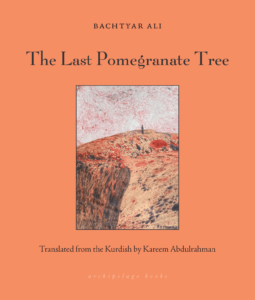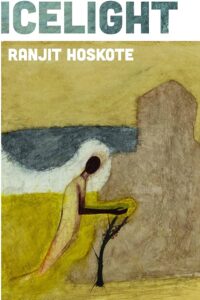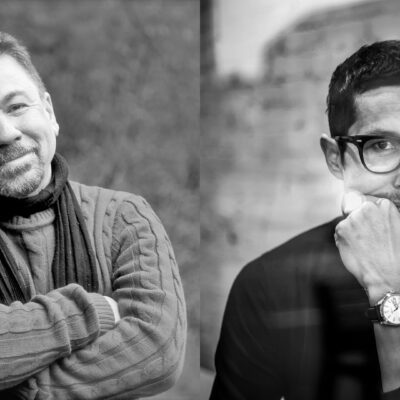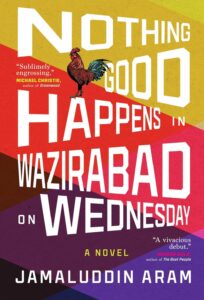Bachtyar Ali, author of The Last Pomegranate Tree, and translator Kareem Abdulrahman will be in conversation with World Languages & Literature professor Margaret Litvin to celebrate the recent publication of Ali’s The Last Pomegranate Tree—“a phantasmagoric warren of fact, fabrication, and mystical allegory, set in the aftermath of Saddam Hussein’s rule and Iraq’s Kurdish conflict.”
You can reserve your free ticket on Boston University’s website.
Bachtyar Ali was born in 1966 in Sulaimaniya in northern Iraq. In 1983, he was injured during a student protest against Saddam Hussein’s Ba’ath party, and the experience inspired him to focus on writing. He received his first prize that year, for his poem “Nishtiman” (“Homeland”). After the revolt of 1991, writers and intellectuals in the Kurdish region of Iraq experienced a surge of creative autonomy. In the intervening years Ali has written over 40 books of fiction, poetry, and criticism, including 12 novels. He has been translated into over seven languages, a renown very few authors writing in the Kurdish language enjoy. In 2017, he was awarded the Nelly Sachs Prize. He is also the recipient of the Sherko Bekas Literature Prize and the HARDI Literature Prize, and in 2005, the Ministry of Culture of Iraqi Kurdistan elected the novel Shari Mosiqare Spiyekan (The City of the Musicians in White) as the best book of the year.
Kareem Abdulrahman is a translator and Kurdish affairs analyst. From 2006 to 2014, he worked as a Kurdish media and political analyst for the BBC, where translation was part of his job. Abdulrahman translated Bachtyar Ali’s I Stared at the Night of the City into English (UK; Periscope; 2016), making it the first Kurdish novel to be translated into English.
Margaret Litvin is a historian of modern Arabic literature and theatre. Her first book, Hamlet’s Arab Journey: Shakespeare’s Prince and Nasser’s Ghost (Princeton, 2011), has been taught in university courses ranging from “Theatre History” to “The New Comparative Literature” to “Anthropology of the Middle East.” Her current research continues the effort to situate Arab cultural production in global context. Her book manuscript, Another East: Arab Writers, Moscow Dreams, reconstructs some literary legacies of Arab-Russian and Arab-Soviet cultural ties. Another ongoing book project, Sindbad’s Raft, Houdini’s Cage: Arab/ic Theatre in the New World Market, analyzes the phenomenon of Arab/ic theatre produced for European and American audiences. Her translations include Hamlet adaptations by Syrian and Iraqi playwrights (in Four Arab Hamlet Plays, co-edited with Marvin Carlson, Segal Theatre Center, 2016) and Sonallah Ibrahim’s Moscow-set novel Ice (Seagull Publishing, 2019).




